Top Class Actions’s website and social media posts use affiliate links. If you make a purchase using such links, we may receive a commission, but it will not result in any additional charges to you. Please review our Affiliate Link Disclosure for more information.
When you get your credit card receipts after a purchase, always make sure to check the bottom of the receipt to see how many credit card numbers are displayed. Why? According to federal law, receipts are not allowed to display the full 16-digit card number. Indeed, a portion of the number is required to be obscured.
If your receipt does not comply with federal rules, you may be able to file a lawsuit and pursue compensation.
What Is a debit card number?
A card number on a debit or credit card is the unique numerical identifier associated with a consumer’s bank account. Although the numbers do not directly identify an account number, they are used to link the card to an account for transactions.
The first four digits of a debit card number indicates the card issuer, for example, if a debit card is a Visa or if a credit card is a MasterCard, American Express, Discover, or from another issuer. The remaining digits indicate which account the card is linked to, allowing the account to be charged for debit card transactions.
If you are wondering “Where is my credit card number?” or where to find a debit card number, look to the front of your card. This is the most common location of a debit card number, although some cards instead list the card number on the back.
How many numbers does a credit card have?
When answering the question, “How many numbers does a credit card have?” knowing what type of card you have is important. Most cards have 16 digits in their length of credit card number. Many card numbers are listed in four sections of four digits. However, American Express credit cards are notable exceptions because they have only 15 digits in the related card number.
Although the length of credit card number digits will vary, these numbers are always important for identifying a cardholder’s payment information.
Why are debit card numbers important?
Because a debit card directly links to a consumer’s bank account, keeping debit card numbers private and protected is extremely important. If a perpetrator were to get a hold of debit or credit card numbers, they could use this information to make unauthorized purchases, commit identity theft or other fraud, or open new lines of credit in the cardholder’s name. Criminals could make large purchases, rack up debt, or ruin the cardholder’s credit, all without their knowledge. A perpetrator could even sell a consumer’s private financial information to other criminals on the dark web.
In order to protect consumers from identity theft and other financial harm, the government has passed several consumer protection laws designed to keep debit card numbers and other payment information private. One such protection is the Fair and Accurate Credit Transaction Act (FACTA).
What is FACTA?
The Fair and Accurate Credit Transaction Act (FACTA) is a set of rules put in place to protect consumers’ debit and credit card information from being accessed, which could lead to fraud and identity theft. FACTA was first passed in 2003, and has been in full effect for businesses since Dec. 1, 2006.
The act has a variety of provisions which provide protections to consumers and their credits. One provision allows consumers to receive a free credit report every 12 months from each of the credit reporting bureaus: Equifax, Experian, and TransUnion. This can help consumers stay on top of their credit reports and monitor for potential identity theft. FACTA also limits the chance of identity theft by standardizing information on electronically printed receipts.
How many debit card numbers is it legal to print on a receipt?
Under FACTA, retailers are only allowed to print the last five debit card numbers on a receipt and no information about the expiration date. The number of payment card digits allowed on a printed receipt is standardized in order to prevent the chance that perpetrators could piece together a full payment card number which they might then use to make fraudulent purchases.
The credit card number is not the only number to pay attention to on your receipts. Under FACTA rules, no part of the expiration date should be shown at all.
In order to prevent the printing of too much information, retailers can use truncation – a process that replaces digits with symbols such as # or *.
Risks of identity theft
If someone steals your identity, the thief may use your personal information and credit history to buy items and borrow money without your even knowing the theft has occurred. The consequences of identity theft can be felt for years, even if a perpetrator is caught quickly.
Much identity theft these days involves hacking electronic data. Data breaches are becoming far more common and the information stolen in these attacks is often sold on the dark web for a tidy profit. Although electronic theft is more prevalent, old school thieves still get lucky when they search for discarded receipts that are not FACTA compliant.
Fortunately, one of FACTA’s consumer protections is access to a free credit report, which is available once a year from each of the three national credit bureaus. According to Investing Answers, you can check your credit every four months for free by using a different credit bureau each time. The three top credit bureaus are TransUnion, Equifax, and Experian, all of which compete to collect, store and update the credit histories of most active consumers in America.
If you notice an unidentifiable new credit card on the list (most likely with a large balance), you can call the credit card company immediately to report the charges are not yours. You also can file a police report to report identity theft.
When someone steals your identity, you may suffer the repercussions of a poor credit report that you didn’t initiate. The sooner fraudulent activity is identified, the less time it will take to unravel the damage done by the identity thief.
It is important to check your credit report so that you are aware of all the accounts associated with your name. Monitoring your credit report may make it more likely for you to catch any identity theft or unexpected activity in a timely fashion.
If a retailer is providing receipts that are in violation of FACTA, the ultimate consequences may be identity theft.
 How do I know if my receipt complies with FACTA rules?
How do I know if my receipt complies with FACTA rules?
If your receipt follows FACTA standards, then you should see—at most—the last five credit card numbers displayed. FACTA requires the use of a simple process called truncation—that is, the censoring or shortening of credit card numbers to make them inaccessible to potential fraud.
A properly truncated number should look something like this:
- **** **** ***1 2345
In many cases, businesses choose to censor all but the last four digits, so it looks like this instead:
- **** **** **** 1234
The following are examples of improperly truncated receipts which would violate FACTA:
- 1111 22** **** 4444
- 1111 **** **** 4444
- **** **** ** 444444
FACTA also prohibits the inclusion of any expiration date information on a receipt. Expiration dates are often used as authentication measures for online purchases, so they are heavily protected by the federal law. Since the expiration date should be completely censored under FACTA, those digits will be displayed something like this:
- **** or
- **/**
Any of the following are examples of improperly printed expiration date information:
- EXP: 03/17
- EXP: 03/2017
- EXP: 032017
- EXP: 0317
- Expires: 0317
- Exp Date: 03/17
- Exp Date: 03/31/17
- EXPIRY: 03/17
- 03/17
- 0317
- Date 03/**
- **/17
- 2017/03
When in doubt, assume that your receipt is unlawful under FACTA if it includes any information about your expiration date.
Under FACTA, receipts must follow these rules if they are electrically printed. This includes receipts printed by kiosks, restaurants, and retailers. Receipts that are handwritten or imprinted are not required to comply with FACTA guidelines.
Why is it important to check receipts for FACTA violations?
Any single FACTA violation can indicate a widespread issue, because a single machine that has not been updated to conform to FACTA rules may print hundreds or even thousands of receipts that reveal too much of consumers’ private information. According to Investopedia, being able to quickly spot violations of FACTA rules on your debit and credit card receipts protects not only your information, but that of countless other customers who have accepted the same FACTA noncompliant receipts.
Should I file a FACTA lawsuit?
If a retailer has violated FACTA and printed too many debit card numbers on a receipt, you may be able to take legal action and recover compensation. Even if the extra information was printed as a result of a system error, consumers are allowed to take legal action for the real risk of identity theft.
Catching FACTA violations can protect you and countless other consumers from identity theft and fraud. When multiple consumers are affected by the issue, a FACTA class action lawsuit could help a large number of consumers recover compensation for the issue.
Filing a FACTA lawsuit can lead to compensation for these violations. Under FACTA, consumers are allowed to seek up to $1,000 in statutory damages for each violation (i.e. for each receipt printed with too much information). Save any FACTA noncompliant receipts as evidence of the violation to support your case.
For those who serve as a lead plaintiff in a FACTA class action lawsuit, an incentive award may amount to much more. In some cases, lead plaintiffs have received as much as $20,000 in FACTA cases.
Some companies may choose to resolve FACTA allegations by settling the claims against them. Although FACTA settlements may not result in payment of up to $1,000, these deals can still result in high payments for consumers.
Companies that have been accused of printing non-FACTA compliant receipts include Godiva, Six Flags, LabCorp, Jimmy Choo, Spirit Airlines, and Microsoft. In 2020, a lawsuit was filed against Six Flags for allegedly printing more than the last five digits on customer receipts.
According to the plaintiffs, Hugo and Sharon S., they made five food purchases at Six Flags in August 2017. They claim that on each of the receipts they received from these purchases, at least the first six digits of their debit cards were visible, in addition to the last four digits.
The plaintiffs claim that this FACTA violation may have exposed their information and the information of other customers at Six Flags to potential thieves. Additionally, the plaintiffs claim that Six Flags either knowingly violated FACTA by printing the additional debit card digits, or acted in a reckless fashion by failing to ensure customer privacy.
If you have a receipt (or invoice or contract) from a business that has printed more than the last five digits of your credit or debit card, or any portion of the expiration date, you may be able to file a FACTA credit card receipt class action lawsuit. You could help recover millions for yourself and others in a class action settlement over FACTA violations.
Join a Free Credit Card Receipt Class Action Lawsuit Investigation
If you have a receipt, invoice or contract from a retailer or vendor that includes more than the last five digits of your credit card or debit card number or any portion of the expiration date, you may qualify to file a credit card receipt class action lawsuit.
This article is not legal advice. It is presented
for informational purposes only.
ATTORNEY ADVERTISING
Top Class Actions is a Proud Member of the American Bar Association
LEGAL INFORMATION IS NOT LEGAL ADVICE
Top Class Actions Legal Statement
©2008 – 2024 Top Class Actions® LLC
Various Trademarks held by their respective owners
This website is not intended for viewing or usage by European Union citizens.


 How do I know if my receipt complies with FACTA rules?
How do I know if my receipt complies with FACTA rules?




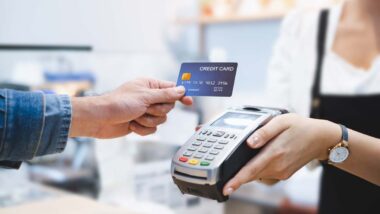
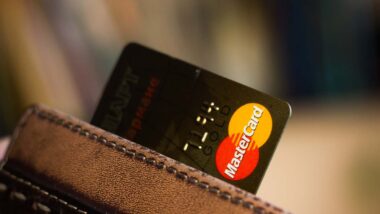



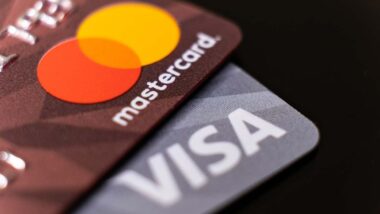
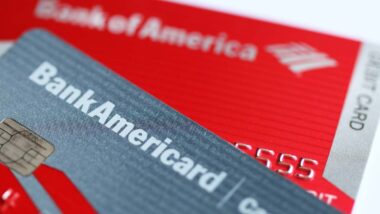
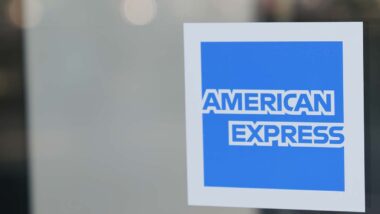
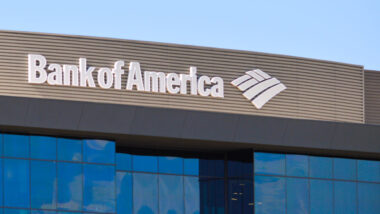
12 thoughts onHow many credit card numbers is it legal to print on a receipt?
Add me please